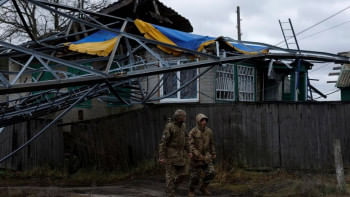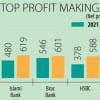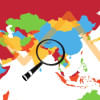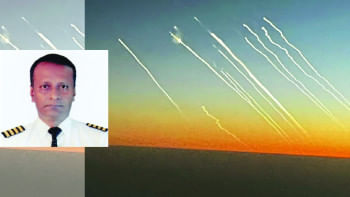Russia and the economic consequences of war

It has been almost two years since Putin decided to invade Ukraine. Since then, the consequences have been limitless; from thousands of deaths on both sides of the war to high inflation rates worldwide. Thus, after 22 months of invasion, let's evaluate the popular opinion about the conflict and whether it was worth it or not for Russia to invade Ukraine.
Unlike previous years, when Vladimir Putin appeared by himself for the end-of-year speech, in 2022, the Russian president showed up surrounded by military personnel. Throughout 2023, we saw how a war-like atmosphere was present in most of the crucial decisions made in the country.
If we examine domestic politics, studies show that most of the Russian population approves of the war, as it is not perceived as Russia's conflict against Ukraine but rather against the West. According to a poll by Russia's Levada Center, 75 percent of the Russian people support the war while 22 percent believe Russia should not cease the attacks. This clearly indicates that ordinary Russian citizens and their leaders have internalised the war.
Despite all the sanctions, Russia's economy is predicted to grow by almost three percent, partly driven by government expenditure and substituting Western brands with Russian and Chinese ones. Profits generated from oil sales have also been a major contributor to this economic proliferation.
The reality is that both countries are experiencing war differently. While Ukraine, partially occupied, has been enduring missiles and air attacks, Russia has encountered nothing more than some Ukrainian settlements along its borders. Even when Ukrainians attacked government buildings in Moscow, Russian citizens continued their lives as usual. Moreover, every month, fewer people are actively opposing the war since those who did so before were subjected to detentions, unfair trials, and incarcerations.
In terms of economic policy, it seems the government is significantly detached from the war. For 2024, Russia will allocate six percent of total GDP for military operations, the highest since its breakup in 1991, with almost 40 percent earmarked for the Ukraine war. Furthermore, the remaining components of the Kremlin's economic policy are tailored to meet the demands of the war and address the consequences of Western sanctions. The upside for Russian citizens is that this military boom has driven the unemployment rate to a record low of around three percent). Additionally, families whose members go to Ukraine to fight are generously compensated by the government, regardless of whether they return alive or dead. Therefore, the war has created an opportunity to earn substantial income that would be nearly impossible to attain otherwise in Russia, especially in the poorer regions.
Despite all the sanctions, Russia's economy is predicted to grow by almost three percent, partly driven by government expenditure and substituting Western brands with Russian and Chinese ones. Profits generated from oil sales have also been a major contributor to this economic proliferation.
To note, Russia and Ukraine are experiencing divergent economic trajectories, highlighted by the difference in their benchmark interest rates. While Russia recently raised its benchmark lending rate to 16 percent, Ukraine lowered its key rate to 15 percent. Following Russia's invasion of Ukraine in February 2022, both countries decided to implement aggressive interest rate hikes and capital controls to stabilise their financial markets. However, Russia's unexpected oil windfall allowed it to reduce rates shortly afterward, whereas Ukraine maintained rates above 20 percent for over a year. After almost two years of war, Russia is grappling with inflation and signs of economic overheating. Meanwhile, Ukraine has displayed surprising economic resilience, with inflation decreasing sharply and the central bank upgrading its 2023 economic growth forecast to around five percent.
International relationships are also worth discussing, since war has monopolised them. Today, every single relationship with every country is evaluated based on whether that country can directly contribute to Russia's war interests. It is not surprising that, in 2023, China became the most important foreign partner for Russia, as it fulfils the latter's three main requirements: it can support Russia with military material, sustain the Russian economy, and assist in preventing the enormous growth of US influence.
Barring any surprises, Putin will be re-elected in March 2024 and will continue to rule Russia for six more years. It appears he is unwilling to halt what he initiated in 2022. His intention seems to persist, with operations in Ukraine and confrontation with the West. Russia's economy remains strong despite the sanctions it is facing, and Putin takes pride in resisting the tens of billions of dollars that the US has provided to support Ukraine. In his own words, "denazification, demilitarisation of Ukraine, and its neutral status" are his goals; and peace will not be achieved until those objectives are met.
Even though Putin feels secure in his position and Russia appears to remain strong as a nation, what is undeniable are the devastating human consequences of the conflict. US intelligence has expressed that the war has weakened Russia's army, with 315,000 Russian personnel killed or injured since February 2022, constituting about 87 percent of Moscow's pre-war force of 360,000. Leaders should take this into account and focus not only on the economic situation and ideological beliefs but also on the families that are being affected by deaths every day. We have learned from previous conflicts that the consequences and collateral damage after a war are never easy to overcome, and people always suffer the most. Additionally, we have seen how wars can trigger a domino effect when countries perceive no consequences for their actions.
M Kabir Hassan is professor of finance at the University of New Orleans, US.
José Antonio Pérez Amuedo is doctoral student at the University of New Orleans, US.
Views expressed in this article are the author's own.
Follow The Daily Star Opinion on Facebook for the latest opinions, commentaries and analyses by experts and professionals. To contribute your article or letter to The Daily Star Opinion, see our guidelines for submission.

 For all latest news, follow The Daily Star's Google News channel.
For all latest news, follow The Daily Star's Google News channel. 










Comments